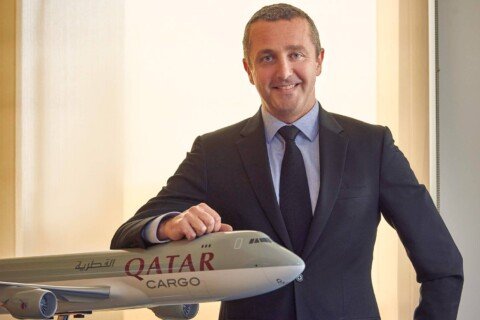ATC Aviation Services’ main vision is to be the leading Cargo GSSA in the world. At present, the company has spread its presence in 33 countries by operating 54 offices, and further aims to expand its network, grow business across the globe and set the highest standards of excellence in the cargo handling business, through quality and transparency in service delivery. Among ATC’s 75+ airline customers are leading global network carriers and small niche carriers, but the company makes sure that every customer gets dedicated and tailor-made services and required attention made possible by its dedicated teams. Ingo Zimmer, CEO, ATC Aviation Services echoed, “For us, Europe is very important where we are covering Germany, The Netherlands, France, Switzerland, Austria, Spain, Poland, Hungary, Czech Republic, and Slovenia. We are very strong in the Americas as well. In the US, we have got nine sales offices. You can also find us in Canada, Chile, Argentina, Brazil, Ecuador, Peru, and Bolivia.” In an exclusive interview with Ritika Arora Bhola, the air cargo expert shared further about their expansion plans is Asia, considering that are already present and growing in Hong Kong, China, India, and Korea.
The year 2020 is a disruptively important year for many. That said, to what extent did ATC Aviation’s operations remained unhindered although the pandemic continued to casts its spell over the globe?
Already, at the beginning of the pandemic our high-grade of digitalisation allowed us to immediately move our teams from the normal offices into the home-office environment. Our IT infrastructure is cloud-based and hardware like laptops and PCs has been provided to be used at home-office.
So, how did you ensure that your effective customer relationship policies outlast coronavirus and shape up to be far more effective in the new normal? So, how did you restructure your network strategy?
Today, while more and more people continue to get vaccinated, the first physical events and exhibitions like IATA’s WCS in Dublin and the CNS conference in Miami are set to start again. Also, the first round of customer calls have been initiated, but we have learned to use the digital tools in this new normal. Skype and other video conference software will remain our virtual gateway to the world and a means to reach out to our valuable customers.
As a GSSA, what are the most important parameters you follow while serving a particular airline?
Revenue generated is what goes into making operations successful, so revenue management is very important to us. It’s not only the yield per kgs which counts, in general; our managers are measuring the revenue by pallets and flights. Importantly, it also depends on a good mix of business coming from global forwarders and SMEs.
The cargo flown serves as a booked performance, and services is the base to get the customers to generate the revenue. And finally, an important KPI is the market share.
How nimble and agile should any GSSA be to bring in and take out capacity at a time when the marketing conditions are so dynamic?
A GSSA got to have its fingers always at the pulse of the market. We are getting a lot of information from intelligence sources like IATA and Seabury Consulting, but we are also in daily direct contact with our forwarders. We have not only managed hundreds and thousands of PPE kits and vaccines charters during the pandemic, but also invested in scheduled BSAs and freighter charter flights to provide capacity to our customers. Well, a new opportunity is the sale of unused capacities on agent charters.
What are the most important objectives you have set for 2021 and beyond and what services are you currently developing to accomplish those?
Our main objective is to grow our network further and offer vertical and supplementary services beside the standard GSSA business. We are in the process of acquiring and integrating GSSAs at origins where we are not present yet, but the organic growth will also continue. We have tapped into the charter and solutions business and OBC contracts have started off in 2021.
Could you explain on what makets ATC Aviation better than its competitors? What is your USP?
The relationship we built up with our airline and forwarder customers in our more than 40 years of history makes us a trustworthy partner.
We offer a one stop shop and a global network to our customers. Our grade of digitalisation is very high. We have just launched an e-booking channel for our customers. The intelligence coming from our data lake which is visualised in Power BI helps us to take the right decisions for our customers.
Nonetheless, our personnel are our biggest asset. We have selected and appointed a very dynamic and creative team of airfreight managers and experts. There is an ongoing process of further the education and learnings from within the business to our teams, even if it may be via digital platforms considering today’s scenario.
Further, looking at the current changing environment, what’s most critical to your mind for your company to succeed?
I see only positive signs; especially during the pandemic, airlines have learned to control their fixed costs. There is a strong trend to further outsource, and we are working on more tenders than ever.
We will use digitalisation in our favor to bring down costs and up the speed. Digital platforms are an additional sales channel and not a replacement for GSSAs. We are a GSSA with one “S” for unwavering Service, and the other “S” defining Steadfastness. It’s not only the sales of capacity that we deliver to our customers but it is so much more. Practically, an airline’s cargo GSSAs SLAs are so very extensive today, and we strive to live up to our customer’s expectations and provide them the best service experience.







